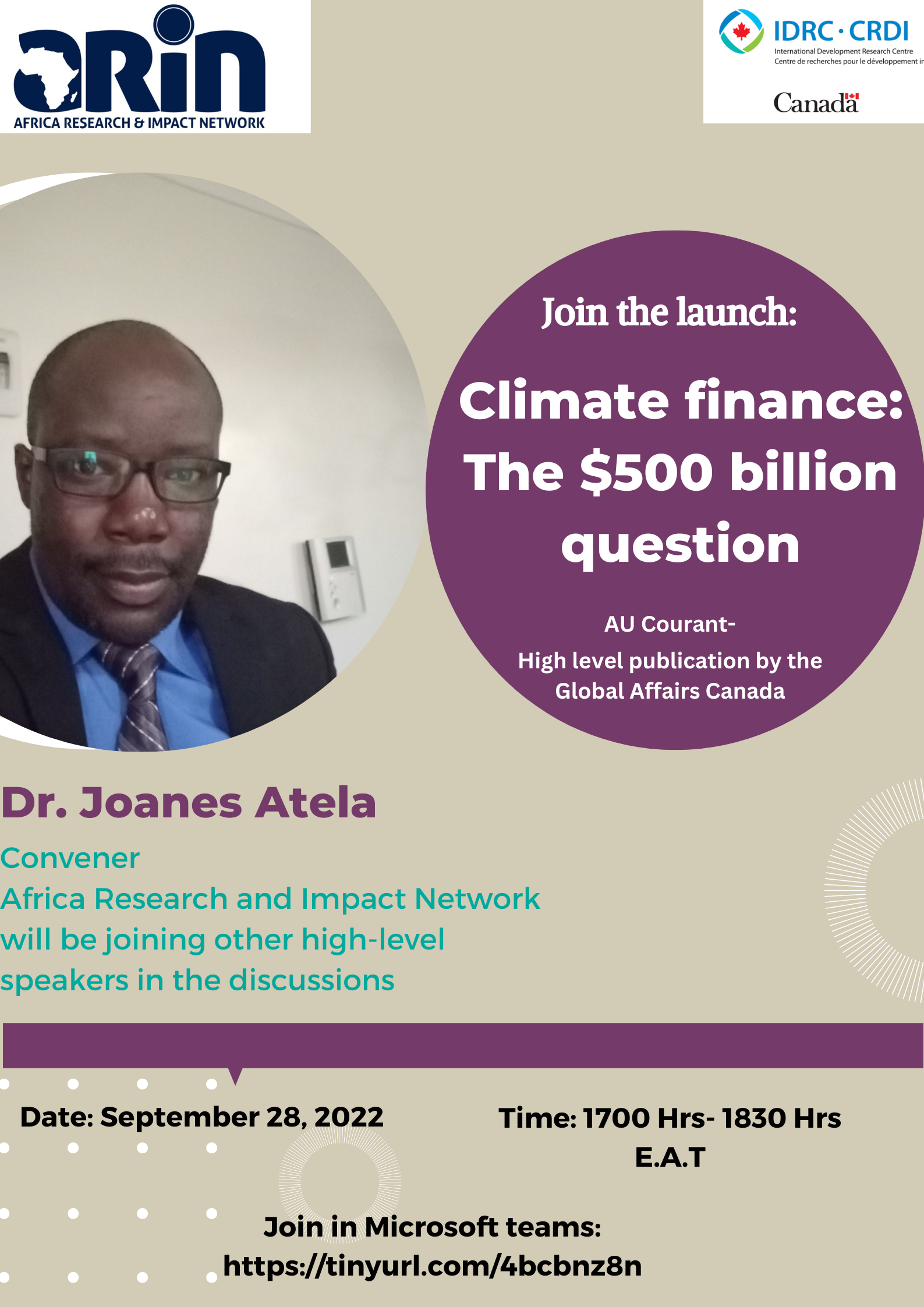
- This event has passed.
Climate finance, the US$500 billion question

Background
Globally, we are all affected by climate change, but vulnerable communities bear a disproportionate burden. Africa is experiencing temperature and rainfall above normal variability(6th IPCC report), which manifest in the local communities in terms of loss of livelihoods, poverty, famines, prolong droughts, food and water insecurity, biodiversity loss, and humanitarian challenges among others. Governments in Africa are investing heavily on emergency response due to limited resources and technology support. This is compounded by the current global climate finance architecture, which is not well suited to supporting local actors’ climate actions in the developing economies.
“The Nationally Determined Contributions (NDCs) of 51 African countries cumulatively show a need for an estimated $579 billion in investment for adaptation through 2030. This compares to the $11.4 billion in tracked adaptation finance to Africa on average annually from 2019 to 2020. If this trend were to continue through 2030, adaptation finance would total $125.4 billion through 2030, far short of the $579.2 billion (or approximately $52.7 billion annually) in estimated needs per costs of implementation stated in NDCs. Adaptation finance is thus scaling too slowly to close the investment gap, even as the costs of inaction rise.”-(GCA Report: Innovation for Climate Adaptation in Africa 2022)
Innovative climate finance like WB funded Financing Locally Led Climate Action Program (FLLOCA) is being piloted in the Africa particularly in Kenya. However, this is not sufficient to address all climate relate impacts in Kenya. Therefore,
- How will we fund the annual adaptation costs in developing countries which are expected to reach USD 140-300 billion in 2030 and USD 280-500 billion in 2050?
- What contributions can feminist, Indigenous, and localized approaches make to bridge the climate finance gap?
- How can Canada help Sub-Saharan Africa build resilience to climate change in a resource constrained climate finance regime?
- How can we all contribute to a low-carbon, inclusive economy in Sub-Saharan Africa with the existing climate finance architecture?
The ARIN network through its strategic partnerships has been able to deliver several projects geared towards building the capacity of Africa in financing of locally led climate action. The most recent one is the NDC- Finance Fellowship Academy which aimed at supporting, promoting, and training exceptional people from the fields of policy and research on NDC Financing in Africa. Close to 40 African NDC fellows drawn from 26 Sub-Saharan African countries were trained and they are now able to apply constructive insights to improve the role and mechanisms of climate financing at their local levels (link). Approximately 20 NDC fellows were awarded NDC fellowship micro-grants to undertake research on climate financing in the respective countries.
Among the key messages:
- Low capacity to design local climate finance and to track international climate finance in Sub-Saharan Africa
The ARIN Network, through our convener Dr. Joanes Atela, is privileged to contribute to the summer 2022 edition of GAC’s Au Courant journal on Climate finance: the $500 billion question, which is available now on the International Assistance Research and Knowledge portal.
